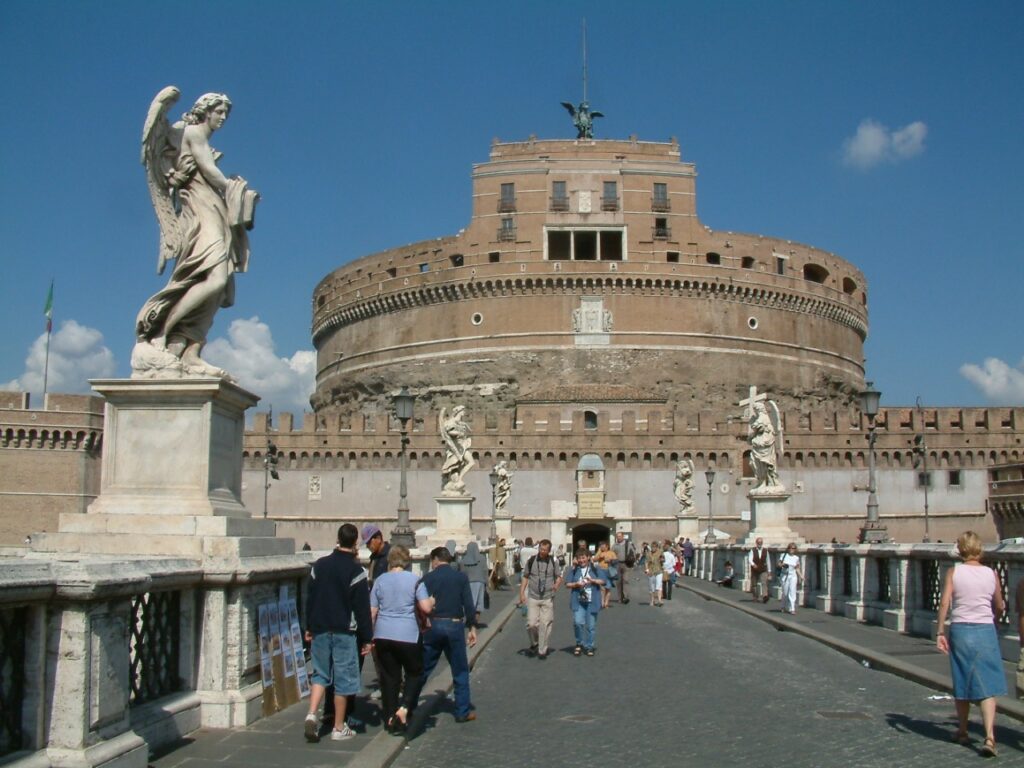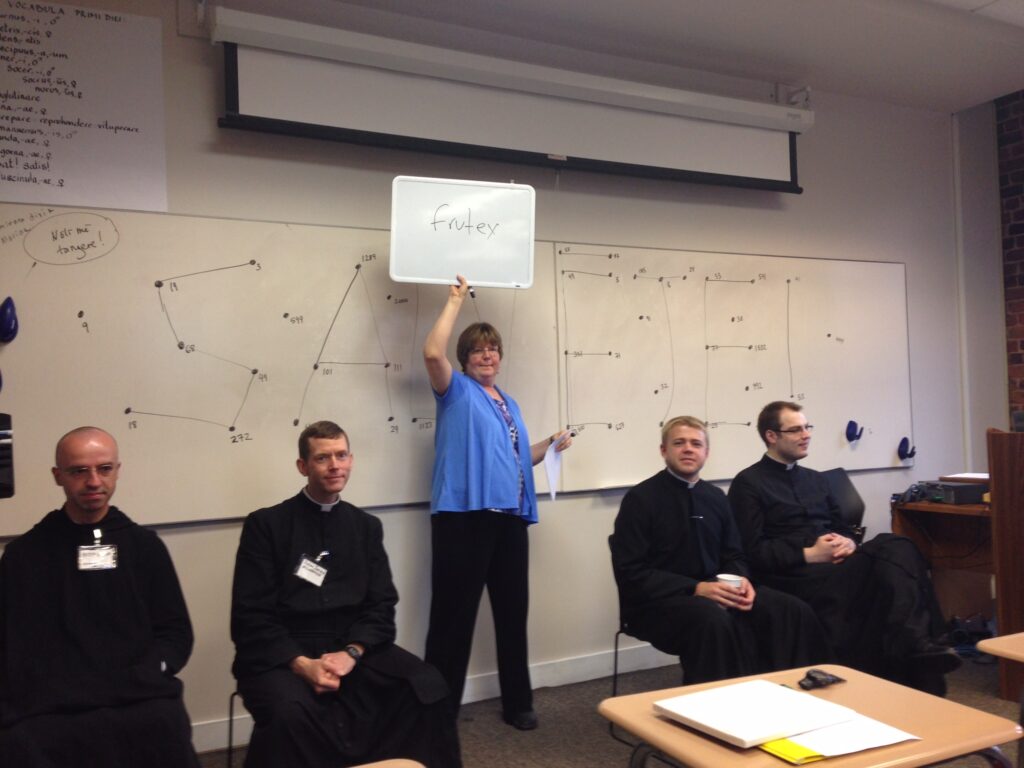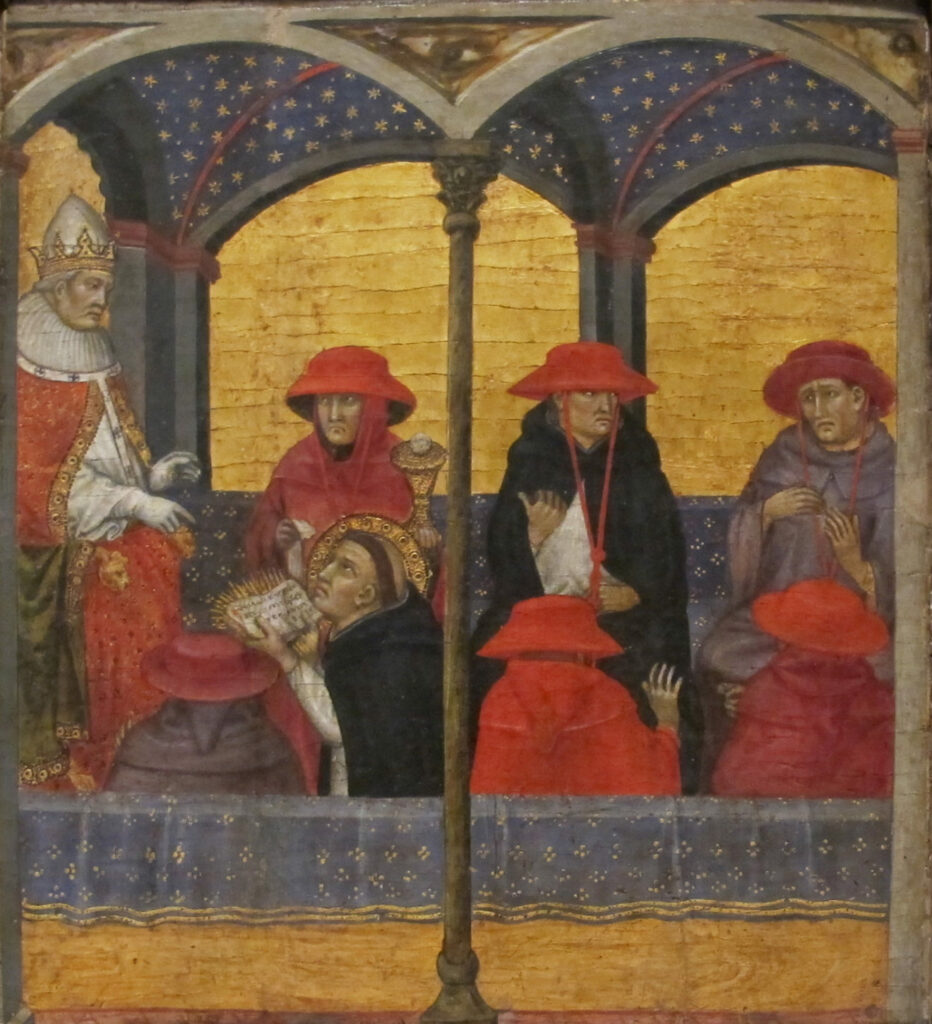Setting the standard for
Catholic Latin Education
A credential developed upon an integrated Catholic approach to Latin education in Catholic schools. By equipping teachers with the tools needed to pass on the language in its fullness, they will be able to give their students not only active command of the language but also transmit Catholic faith and culture – and, we dare say, have fun while learning!
Graduates may earn up to twelve hours of credit towards an MA in Catholic Liberal Arts Education


Program Description
Our new 18-month teaching credential program is designed to give current and aspiring teachers the tools to make their Latin classes more interactive, and integrate the Catholic faith into their student learning. Building on more than 60 years of combined experience in a living Latin approach, our faculty has taken what they learned from Fr. Reginald Foster, one of the greatest Latin teachers of our times, and synthesized it with the very best of modern language learning. For the first time this integrated Catholic approach is being made available to all.
The program objectives ensure that graduates are able to give their students an active command and use of the Latin language. Learning Latin simply as another foreign language is not the goal; rather, success is defined as an active participation in the Catholic tradition through the medium of the Latin language. This is accomplished by expanding the competencies necessary for success: student outcomes also will be evaluated not just on reading and writing skill, but also on speaking and listening.
In order to successfully fulfill this objective, the program curriculum is structured around four pillars: 1) knowledge and active command of the Latin language, 2) philosophy and pedagogical theory of living Latin, 3) deep knowledge of the Latin Catholic intellectual and spiritual tradition, and 4) application of learning through practica and a capstone project. Additionally, we want our students to have exposure to content in areas that most Latin programs never offer but which are vital for teaching in a Catholic school.
Program Objectives
In this program, designed for current or future teachers, students will be able to:
- Activate latin as a spoken, conversational language for those who do not yet have this foundation
- Participate in the tradition of a vibrant, living Latin culture through reading and discussion of Classical and Christian texts
- Integrate various methodologies into the classroom in aid of student learning
- Synthesize the tradition of Latinity and make it their own, to pass on to the next generation of Latin speakers
Students are eligible to receive up to twelve hours of graduate credit with the following institutions for courses completed in our Teaching Credential:
- Belmont Abbey College – MA in Classical and Liberal Education
Program Content
First Pillar: Knowledge and Active Command of the Latin Language (3 credits, with co- and pre-requisites)
- Participation in VSI Summer Immersion Workshop as a student. (3 credits)
- Latin Proficiency Exam, to be taken sometime after the first summer immersion workshop, and before graduation (co-requisite)
- Completion of the equivalent of courses in the VSI Certificate in Basic Ecclesiastical Latin Language (students who have not yet completed these elsewhere may enroll in the Teaching Credential as a provisional student while working through the pre-requisites through VSI)
Second Pillar: Philosophy and Pedagogical Theory of Living Latin (6 credits)
- History of Latinity (3 credits)
- Living Latin Pedagogy (3 credits)
Third Pillar: Deep Content Knowledge of the Latin Catholic Intellectual and Spiritual Tradition (6 credits)
- Catechesis (3 credits)
- Liturgy (1.5 credits)
- Theology (1.5 credits)
Fourth Pillar: Application of Learning (6 credits)
- Participation in VSI Summer Workshop as a student-instructor (3 credits)
- Mentor-supervised Capstone Project (3 credits)
Courses Offered:
- Latin 101 (pre-req)
- Latin 102 (pre-req)
- Latin 103 (pre-req)
- Latin 104 (pre-req)
- Latin Composition (pre-req or co-req)
- Advanced Latin Language (pre-req or co-req)
- Immersion Practicum 1
- Immersion Practicum 2
- Proficiency Test (co-req, waived if completed Basic Certificate)
- History of Latinity
- Living Latin Pedagogy
- Capstone
- Catechesis 1
- Catechesis 2
- Liturgy 1
- Theology 1
Requirements
All applicants must hold a Bachelor’s degree as well as the certificate of language proficiency in Ecclesiastical Latin from VSI, or be able to pass the proficiency exam, demonstrating a basic command of the Latin language in reading, writing, listening, and speaking competencies (after the first summer immersion workshop). With approval, students may be admitted to the Teaching Credential program without this proficiency as a provisional student until that proficiency is attained.
Program Cost for the 2024-2025 Academic Year
Total 18-month Cost: $8,000
- Tuition: $5,350
- Registration fees + books: $400
- Lodging/Meal Costs for two in-person gatherings: $1,100 each.
- Accommodations are provided at St. Bernard’s Abbey, and all meals are provided.
- Proficiency Test*: $50
- *Must pass after the first summer immersion and before completion of the program.
Payment Options
Two payment options are offered. These plans cover the cost of tuition and lodging/meal costs for the in-person workshops.
Monthly Payment Plan: $8,000
- $800 deposit required within 30 days of acceptance
- 18-month automatic, online payment plan ($400/month) beginning in July of year one and concluding in December of year two
Pay in Full: $7,750
- 50% off registration and books fees; proficiency test fee waived
- $800 deposit is required within 30 days of acceptance
- $6,950 remainder paid prior to August 30th of year one
Cancellation Policy
All payments are non refundable. If truly extraordinary circumstances obtain, an appeal can be made via the Registrar or Academic Dean.
Funding & Scholarships
Diocesan / Parish / School Funding
Many schools and dioceses have continuing education funding specifically for individual professional development. If you need assistance with formulating a request for funding, please contact Monica Charles at the address given below.
Title Funding
Many schools and dioceses have access to federal government title funding in support of continuing professional development. While title funding excludes explicitly faith-based courses, many of our courses may be able to be off-set by cost per credit hour through title funding. Please contact Monica Charles at the address given below, who may be able to assist you in making this sort of request.
Scholarships & Grants
VSI receives donations from generous benefactors who are eager to promote Catholic Latin Language Education. Because of this, we sometimes have a limited amount of funds available to assist students who can demonstrate a serious need for financial assistance. To apply, please fill out an application form HERE.
Contact/Questions
For any questions, please contact Monica Charles, VSI Registrar and Director of Student Services.
Meet Our Faculty
Dr. Nancy Llewellyn, PhD (UCLA)
Co-Founder, Veterum Sapientia Institute
Magistra - Introductory Latin
Magistra Annula is Associate Professor of Latin at Belmont Abbey College, coming to North Carolina after a decade at Wyoming Catholic College. She teaches Latin at the Charlotte Diocese’s new St. Joseph College Seminary in addition to her work at Belmont. Earlier in her career she studied with Fr. Reginald Foster and at the Pontifical Salesian University in Rome. Returning to her native California, Nancy founded SALVI in 1997 and served on its board until 2019, directing SALVI workshops (Rusticationes) around the country and abroad. She holds her PhD (2006) from UCLA.
Magistra Jenni Glaser, MA
Magistra – Introductory Latin
Magistra Bella holds a B.A. in Theology from Biola University and an M.A. in Classics from Fordham University. She learned to speak Latin under Nancy Llewellyn in 2011, and Greek at the Polis Institute of Jerusalem, where she taught Greek and Latin and acted as coordinator from 2014-2018, both in Israel and Rome. She is currently a graduate student at Bryn Mawr college, working on Greek and Roman Theater.
Magister Tod Post, MA
Magister
Mr. Post holds a B.A. in philosophy from St. John’s Seminary College in Camarillo, CA and an M.A. in Medieval Studies from the Centre for Medieval Studies at the University of Toronto. His areas of study and interest include codicology and palaeography and creating medieval and classical inks and writing materials. He particularly enjoys working in his garden surrounded by plants from the classical world such as papyrus, acanthus, figs, olives and grapes which also gives him an opportunity to practice his botanical Latin. He is a lifelong resident of southern California where he has been teaching and promoting Latin since 2004 and where he resides with his wife and six children.
Fr. Dylan Schrader, PhD (CUA)
Magister - Scholastic Theology
Pater Pelagius is a priest of the Diocese of Jefferson City, Missouri, ordained in 2010. He holds a PhD in systematic theology from the Catholic University of America and is the translator of several Scholastic works, including On the Motive of the Incarnation, the first volume in CUA’s Early Modern Catholic Sources series, and Book 2 of Thomas Aquinas’s Commentary on the Sentences, edited by the Aquinas Institute for the Study of Sacred Doctrine. Fr. Schrader is the author of The Shortcut to Scholastic Latin, published by the Paideia Institute Press. He has attended every Veterum Sapientia conference since its inception.


